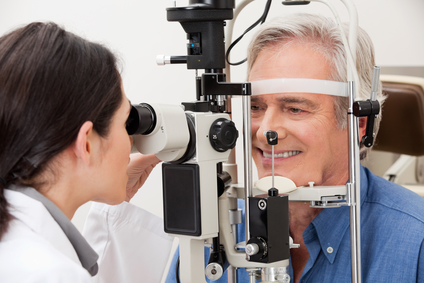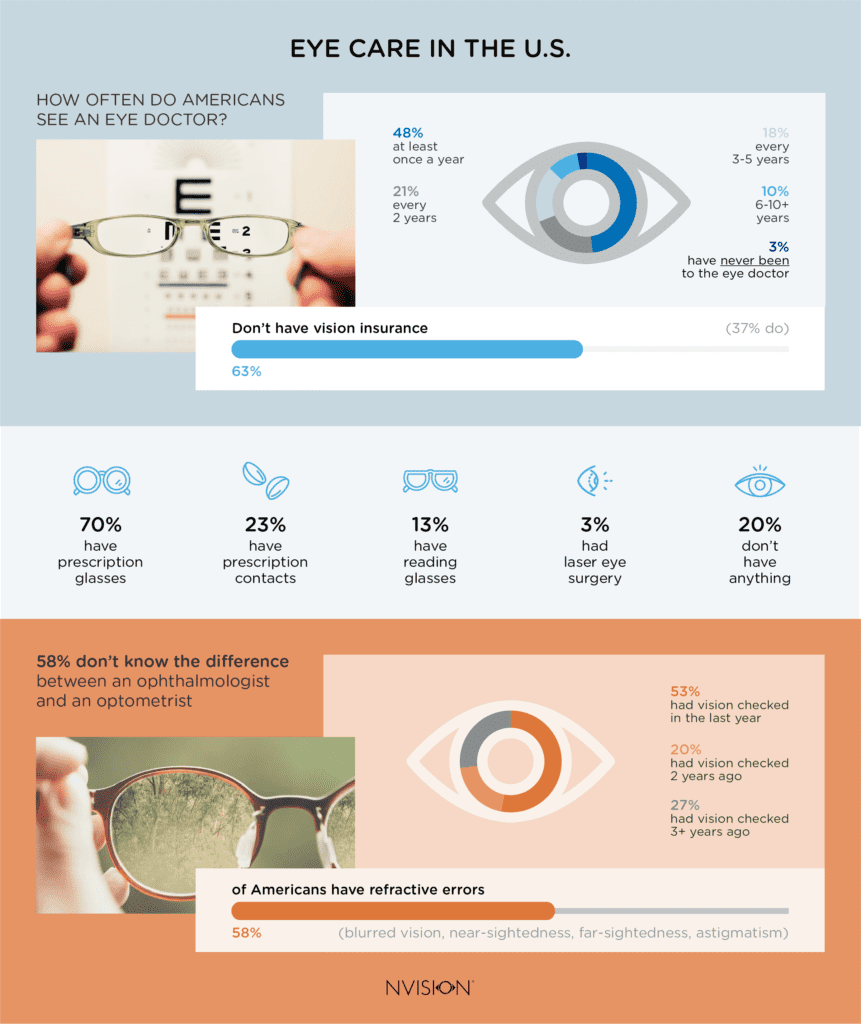What Does Vision Center South Mean?
What Does Vision Center South Mean?
Blog Article
Vision Center South for Dummies
Table of ContentsExamine This Report on Vision Center SouthUnknown Facts About Vision Center SouthSome Known Details About Vision Center South A Biased View of Vision Center SouthThe 9-Minute Rule for Vision Center South
It most likely means that your eyes are altering, and may show that your prescription has actually changed. You must schedule an appointment with your optometrist asap. https://www.ted.com/profiles/49619388. Light sensitivity might indicate an extra serious issue and is a typical sign of a variety of eye conditions, diseases, and infections
Seasonal allergies can make our eyes dry and itchy, as can long term display usage.
They are caused by bits of protein and other cells that are installed in the clear, gel-like material (called glasslike) which fills the inside of our eye. As we mature the vitreous ends up being even more fluid, making the little bits of healthy protein and other cells a lot more obvious. Nevertheless, some floaters (specifically those accompanied by flashes of light) might show a really severe condition, such as a removed retina.
Make an emergency consultation with your optometrist or proceed to the nearby emergency clinic. A lot of retinal detachments can be fixed if they are treated quickly, but if they are not dealt with in time you may experience a loss of vision and even blindness. Double vision, likewise called diplopia, can happen in either one eye (monocular) or both eyes.
The Of Vision Center South
The best method to determine the reason of your dual vision is to schedule an appointment with your eye physician. It may likewise indicate that something much more major is going on, so you need to make a visit with your eye medical professional as soon as possible.
However, problems with nighttime vision might additionally show that you are beginning to create cataracts. Cataracts can only be cured making use of surgical procedure, yet your ophthalmologist can advise steps you can take to slow down the development of cataracts. To find out more, and to get your eyes examined, make a consultation with your optometrist.
Adjustments to your near or far vision generally show that your prescription has actually transformed (vision center south wetumpka). Even if the adjustments are just minor you should still make a consultation with your eye physician to prevent creating unneeded eye pressure.
According to the Canadian Organization of Optometrists grownups with healthy and balanced eyes in between the ages of 20 and 39 should see their ophthalmologist every 2 to 3 years. Grownups between the ages of 40 and 64 ought to make a visit as soon as every 2 years, and adults over the age of 64 must see their optometrist yearly.
Little Known Facts About Vision Center South.

The method of optometry includes: conducting eye examsconducting vision testsprescribing and dispensing rehabilitative lensesdetecting specific eye irregularitiesprescribing medicine for particular eye conditionsproviding visual rehabilitationOptometrists are not medical specialists more info and they do not typically do surgical procedure. Nevertheless, they can do minor surgical treatments, such as laser eye surgical treatment and international body removal. To discover out what an optometrist can do in a specific state or country, an individual can get in touch with the appropriate regional boards of optometry
In many states, they call for a certificate. They may work straight with individuals looking for eye care either in a retailer that markets prescription glasses or get in touches with or in an eye doctor's office. Opticians are not doctors. They can aid find certain eye problems, they largely connect with people and layout and fit the following visual help: eyeglass lenses and framescontact lensesother devices to remedy an individual's eyesightOpticians use prescriptions from an optometrist or ophthalmologist to verify and fit the needed visual aids.
Ophthalmologists are specialized medical doctors, but some ophthalmologists might pick a subspecialty. This entails proceeding their education and learning and training in a certain location of clinical or medical eye treatment - vision center south. Some subspecialties of ophthalmology include: The cornea is the clear, protective outer layer of the eye. It serves as a lens to focus light going into the eyeball.
Individuals who have trauma to the cornea or complex contact lens installations might likewise seek advice from with a corneal professional. A few examples of conditions that a corneal professional can take care of include: A cornea expert can diagnose and deal with corneal eye conditions, such as corneal dystrophies, corneal edema, and keratoconus. They can deal with swelling of the cornea that results from various reasons.
Our Vision Center South Diaries
They can determine causative bacterial, viral, and parasitic microorganisms that cause corneal abscess and scarring Cornea professionals may additionally do surgical treatments such as refractive surgical procedure and corneal transplantation. The retina is the thin layer of tissue that lines the internal component of the back of the eyeball. Its duty is to receive light and send aesthetic signals to the brain.

Glaucoma is an ocular condition that can lead to irreparable vision loss. It occurs when fluid develops up within the eye. The excess fluid taxes delicate retinal nerve fibers, causing damages to the optic nerve. Without therapy, this can cause an individual to progressively shed their field of vision.
Vision Center South for Beginners
A pediatric specialist can assist treat this condition in youngsters and grownups. Refractive errors trigger concerns with a child's vision. Without treatment, this can result in blurred vision that affects their college efficiency. A pediatric specialist can aid determine and deal with the condition, typically with prescription lenses or other rehabilitative measures.


An ophthalmologist can help identify and fix the distinction in vision in between the 2 eyes. Eye doctors commonly call for added aid from nurses, clinical aides, and service technicians. These roles provide vital aid in-office. Ocular signed up nurses have actually undergone extra training in eye treatment. They can administer eyedrops and various other medications and aid with workplace or hospital surgeries.
Report this page